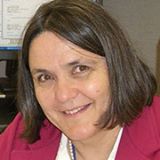Vortrag
in L2 acquisition
what to do about them
 |
Prof. Dr. Betty Lou Leaver (former Provost of the Defense Language Institute Foreign Language Center, USA) A talk for the ↗︎ Virtual Laboratory August 2, 2020, 18:30–20:00 Access to the ↗︎ virtual room without registration |
Abstract
Cognitive distortions are those errors in logical thinking that lead a person to assess a situation incorrectly. They generally have an element of emotion, though the truly emotional versions have been called affective dissonances. Examples include all-or-nothing thinking, over-generalization, magnification and minimalization, selective abstraction, arbitrary inferencing, emotional reasoning, and perfectionism, among a couple of dozen that have been identified through psychological research and practice. Beyond identifying representative cognitive distortions, this presentation will explain how they derail language learning success and what teachers and students can do about them.
Bio
Dr. Leaver is the former Provost of the Defense Language Institute and, currently, the Managing Editor of MSI Press LLC. Prior to coming to the Defense Language Institute Foreign Language Center in 2006 as Associate Provost for Continuing Education, she served as Campus Dean at the Amman (Jordan) branch of the New York Institute of Technology, devoted more than a decade to providing consultation to ministries of education in 24 countries, and led NASA in developing the language program for the then-new International Space Station. Her leadership roles have also included a 6-year stint as a language training supervisor at the Foreign Service Institute of the US Department of State and a 4-year stint as Dean of the Slavic School and Dean of the Central European School at the Defense Language Institute.
Dr. Leaver has taught graduate, undergraduate, and language teacher courses at Middlebury College, Monterey Institute of International Studies, University of Pittsburgh, Bryn Mawr College, and community colleges. She founded the Center for the Advancement of Distinguished Language Proficiency at San Diego State University, the Center for the Languages of the Central Asian Region at Indiana University, and the Coalition of Distinguished Language Centers.
Her publications include Transformative Language Learning and Teaching (Cambridge University Press [CUP], release date: December 2020), Developing Professional-Level Foreign Language Proficiency (CUP), Achieving Success in Second Language Acquisition (Cambridge University Press), Content-Based Instruction for Foreign Language Education (Georgetown University Press [GUP]), Task-Based Instruction for Foreign Language Education (GUP), and two dozen other books. She has published more than 200 articles, book chapters, and monographs and has made nearly as many conference presentations including several dozen keynote speeches. She has received the Elsevier Prize for a jointly authored article on learner variables, the International Society for Performance Improvement’s award for scholarly research, and the Association of American University Administrators’ award for innovation in international education for her DLIFLC programs.
Recommended literature
Salyer, S., & Leaver, B. L. (forthcoming). Managing Cognitive Distortions and Mitigating Affective Dissonances. Hollister, CA: MSI Press.
Salyer, S., & Leaver, B. L. (forthcoming). Cognitive and Affective Transformations in Developing Bilingual and Bicultural Competence, in B. L. Leaver, D. Davidson, & C. Campbell (eds.), Transformative Language Learning and Teaching. Cambridge, UK: Cambridge University Press.
Leaver, B.L., & Stryker, S.B. (2008). Content‐Based Instruction for Foreign Language Classrooms, Foreign Language Annals, 22(3), 269–275.
Leaver, B., Ehrman, M., & Shekhtman, B. (2005). Achieving Success in Second Language Acquisition. Cambridge, UK: Cambridge University Press.
Leaver, B.L. (2003). Achieving Native-Like Second Language Proficiency. Hollister, CA: MSI Press.
|
The project aims to popularize and promote cognitive and neurocognitive sciences data The Virtual Laboratory (a MOOC-like resource) constitutes an open collection The recorded videoconferences will be available at the webspace ↗︎ Detailed project description If you are interested in presenting a talk within the Virtual Laboratory, |
|



